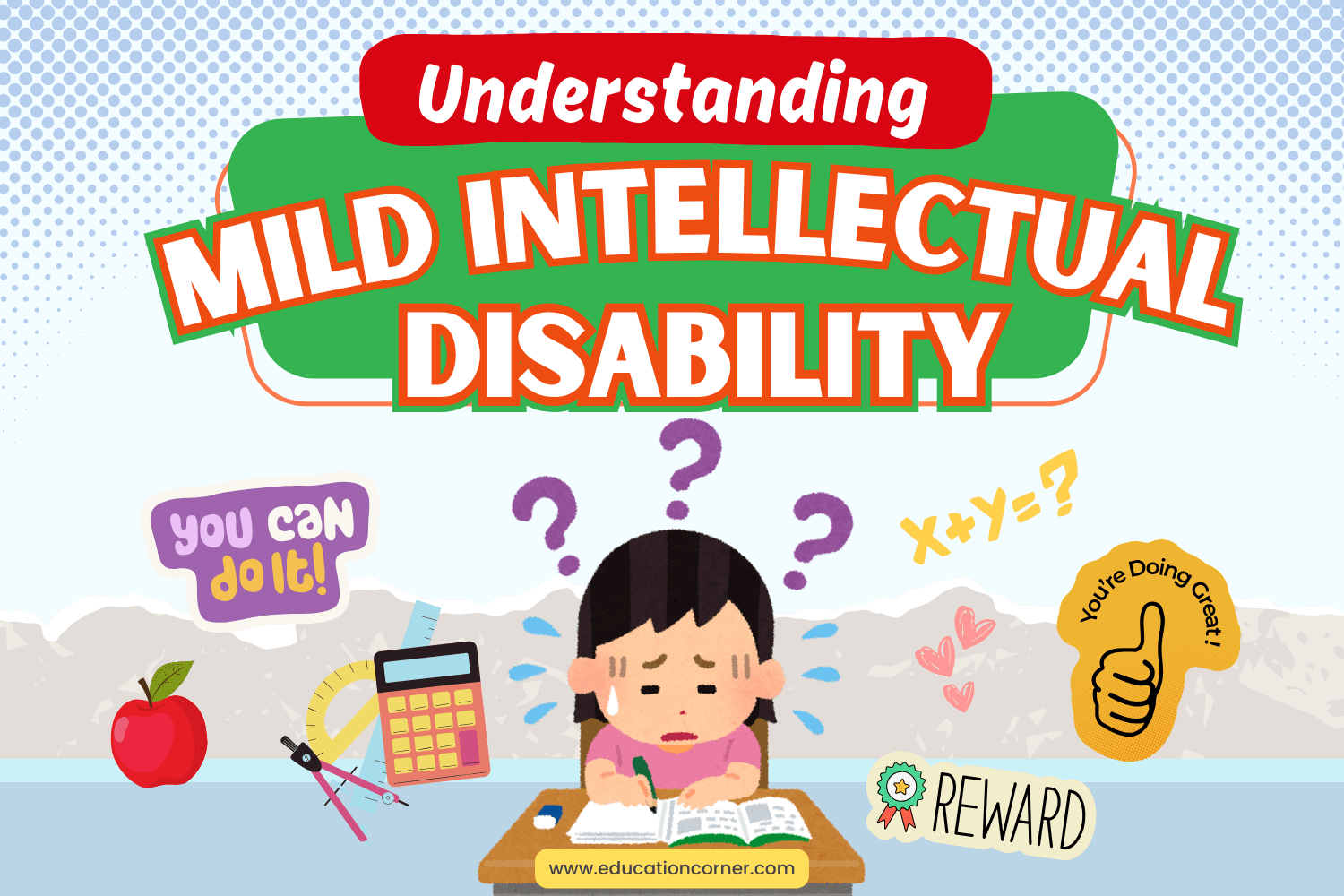Intellectual Disability (formerly termed Mental Retardation) is an impairment of cognitive skills, adaptive life skills, and social skills. Individuals with Intellectual Disabilities are slower to learn new skills and concepts than their peers, but with the assistance of a supportive educational system are often able to live independently as adults.
Roughly 1% of the population are intellectually disabled. The condition ranges in severity from mild to profound. Of those affected, about 85% fall into the “mild” category, and receive the diagnosis of Mild Intellectual Disability (MID).
When diagnosing this condition, professionals look at two factors: Intelligence functioning and adaptive skills. Intelligence functioning is measured by an IQ (Intelligence Quotient) score.
The average IQ is 100. Individuals with IQs of less than 70-75 are considered Intellectually Disabled. Adaptive skills refer to the tasks of daily life, such as communicating with others, or being able to take care of one’s own needs. Intellectual Disability manifests itself as deficits in both of these factors.
MID in the Classroom
Typically, students with MID function about 2-4 years below grade level. This deficit tends to affect not only academic performance but also speech development, memory, and attention span. Students with MID often need lesson modifications, and, depending on the severity of the disability, may need to receive instruction in a special education classroom.
MID also manifests as delays in social development. Students with this condition may be unable to perceive non-verbal cues in social situations, and may be viewed as emotionally immature by their peers. These students often exhibit obsessive-compulsive behaviors, and may need frequent reminders about appropriate social conduct.
MID impairs adaptive skills, which means that students with MID may need help performing the tasks of day-to-day life. These students tend to be disorganized, clumsy, and forgetful.
These students struggle to differentiate concrete and abstract concepts. Figurative language (metaphors, similes, idiomatic expressions, etc.) is typically quite confusing to these students.
How to Best Support Students with MID
As a teacher, the most powerful thing you can do for students with MID is to create a positive, encouraging atmosphere which fosters self-esteem. These students generally struggle with feelings of confidence and self-worth.
When you notice and complement positive progress, no matter how small or seemingly insignificant, the student’s self-esteem is bolstered to some degree, and more positive change becomes possible for the future.
These students are slower to learn new concepts and skills than their peers, so remember to communicate your ideas in the simplest, clearest possible way. If necessary, speak slowly, repeat yourself, and ask the student if he or she understands.
Be careful, though. Don’t “talk down” to the student, as this may exacerbate feelings of inferiority and issues with self-esteem. Keep conversations as normal as possible, always attempting to be as inclusive as you can.
Establishing simple, clear rules for the classroom, as well as consequences for when they’re broken, is crucial. Students with MID often have trouble following rules and routines, so it’s important to make your expectations as easy to understand and predictable as possible. Consequences should be administered consistently and paired with some brief, calm feedback for the student. Don’t call the student out in front of the whole class; a brief, one-on-one discussion works much better.
Students with MID may exhibit maladaptive or disruptive behavior in the classroom. Behavior contracts are a useful tool for solving this problem. A behavior contract is a written agreement between the teacher and the student, identifying 1) the behavioral goal, 2) the criteria for success, and 3) consequences and rewards for behavior.
Choose only one behavior to address at a time; choosing more than one will only overwhelm you and your student. Be sure to set a review date for the contract, so the student has a finish line in sight.
These students will need your help to learn some basic life skills, such as organizational skills and social skills. Visual and pictorial cards are highly effective for organization. A visual schedule of the day’s activities, either on a bulletin board or on a small card which the student carries throughout the day (or both), can be helpful for planning and transitioning.
Social skills are much more subtle and will vary greatly across different situations. Pay attention to the way your student acts around his or her peers. Be sure to encourage positive social interaction, and, when possible, offer guidance away from negative interactions. A supportive social network of friends and peers can make a world of difference to these students’ success.
Lessons will likely need to be modified to accommodate these students’ needs. Fewer problems, at a lower grade level, may need to be assigned. The student may need shorter periods of work time, interspersed with brief breaks.
Reinforcing successful periods of work time with a desirable activity or item will help keep your student motivated. Whenever possible, be sure to teach specific strategies for learning and functioning, rather than mere facts.
Students with MID tend to be highly distractible. A study carrel, which gives the study a quiet space to study removed from distractions, can be very helpful.
The Bottom Line
Be patient! Teachers often become frustrated by the delayed rate of development in students with MID, but a large percentage of these students do in fact learn to live independently as adults.
The environment you create in your classroom, the skills you teach, and the encouragement you give may be the key to a successful future for these students, so don’t give up!

